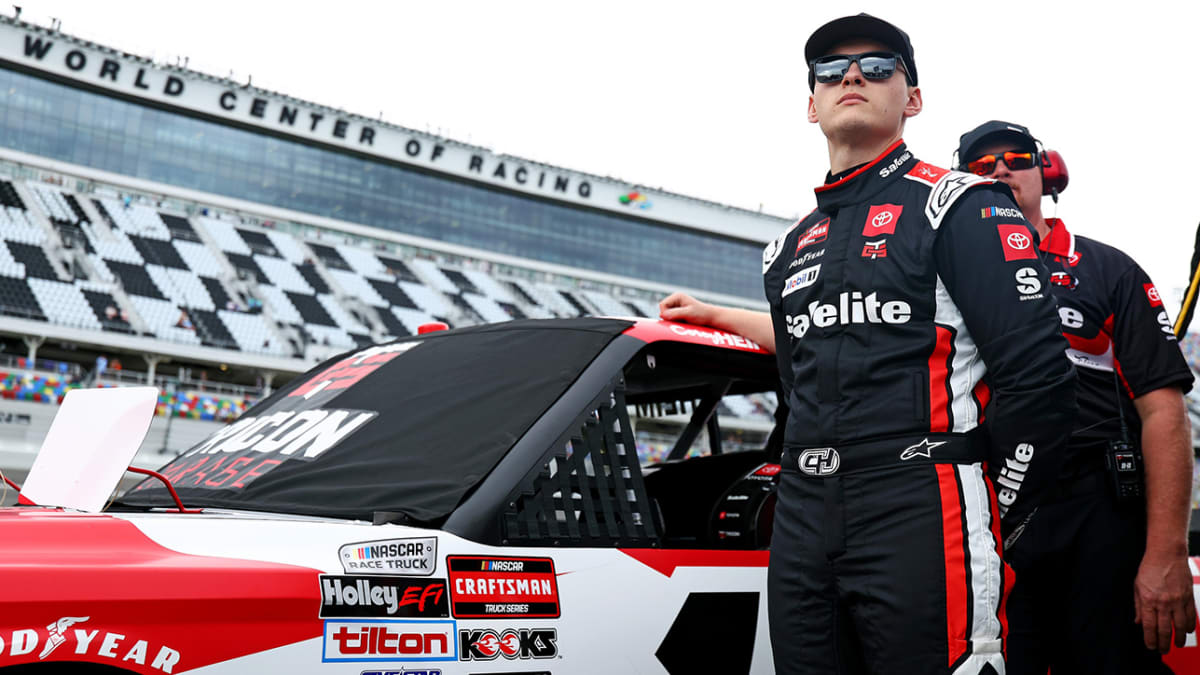The NASCAR Truck Series has raised questions about its racing and its necessity in the development of drivers…

The NASCAR Truck Series, long considered a key stepping stone in the ladder to the Cup Series, is now facing growing questions about its competitiveness, racing quality, and overall necessity in the modern development of stock car drivers. Once viewed as an exciting and gritty training ground for future stars, the series has found itself in a bit of an identity crisis.
For years, the Truck Series — officially the NASCAR Craftsman Truck Series — served as a proving ground for young talent. Drivers like Kevin Harvick, Kyle Busch, and Erik Jones sharpened their skills in the series before advancing to Xfinity and then the Cup level. The smaller, more aggressive trucks on short tracks and intermediate ovals created a unique type of racing that emphasized bold moves, raw car control, and racecraft in tight packs.
But as the sport has evolved, so has the path to the top. In recent years, more and more young drivers are jumping directly from ARCA or late models into the Xfinity Series, bypassing the trucks altogether. Meanwhile, Cup veterans occasionally drop into the Truck Series, which often overshadows the younger talent the series is supposed to highlight.
“There was a time when the Truck Series was the best way to get noticed,” said former Truck Series champion Johnny Benson. “But now, you’ve got drivers skipping it entirely or only spending a year there. It makes you wonder if it’s still serving its purpose.”
Another issue is the quality of racing itself. While the trucks still produce exciting moments, critics argue that the series has become too chaotic — with races often turning into crash-fests rather than showcases of skill. Aggressive driving, over-aggression from inexperienced racers, and a lack of consistency in officiating have led some to question whether the series is really teaching the discipline needed for the next level.
“There’s a difference between hard racing and reckless racing,” said Cup Series driver Denny Hamlin recently on his podcast. “And what we’ve seen lately in trucks is a little too much of the latter. It doesn’t help the young drivers learn how to manage races. It just turns every lap into survival mode.”
Financial concerns also hang over the series. Smaller teams struggle to stay afloat, and sponsorship dollars are hard to come by. That limits the number of competitive trucks and makes it harder for emerging drivers to find quality rides. The gap between the top teams and the rest of the field continues to widen.
Despite the criticism, defenders of the series point to its accessibility and grassroots feel. It brings NASCAR to smaller markets and offers fans close-up racing with rising stars. It’s also produced drivers like Zane Smith and Carson Hocevar, who have gone on to impress at higher levels.
Still, the question remains: in today’s NASCAR, is the Truck Series still essential, or has it become a relic of an older developmental system? The answer may not be clear yet — but the conversation is only growing louder as the sport looks toward the future.
Leave a Reply